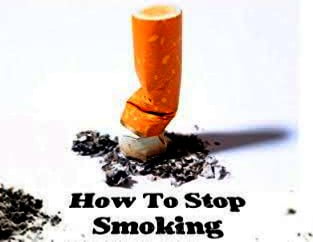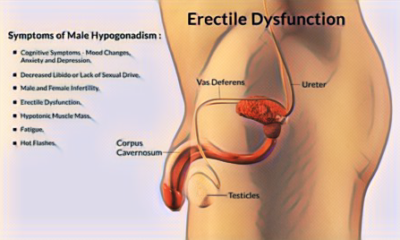Health
How to Quit Smoking?
Smoking cigarettes is a lot like playing Russian roulette, with two sharp differences – the odds of you being killed are a lot higher and unlike the quick painless death in Russian roulette, you’re almost guaranteed an agonizingly slow and painful death.


Smoking is the leading cause of preventable deaths in most parts of the world, with around a third and fourth of all cancer deaths and heart disease fatalities attributable to smoking. In other cases, smoking may not be directly responsible for a fatal disease, but it severely impairs quality of life by increasing your risk for various other health conditions. Nevertheless, quitting smoking is no walk in the park and there are no short cuts to becoming smoke-free.
Causes of Smoking
Nicotine is more addictive than cannabis or marijuana and any other substances that are classified as drugs, so it’s no surprise that countless people across the world struggle to kick the butt in vain. Today all of us are aware of the ill effects and risks of smoking but how is it that so many of us still get hooked? Most of us start smoking for the following reasons:
- Peer pressure
- To socialize
- Association with status
- As a crutch to cope with stress or awkwardness
- Cultural reasons espoused through popular media
For most people, addiction is just a step away as most smokers get addicted very quickly and many struggle to break the cycle for years.
Home Remedies to Quit Smoking
Quitting smoking isn’t easy, which is why it isn’t a decision that you should make lightly. While it is extremely important that you kick the butt, don’t make a reluctant effort with a defeatist attitude. This only sets you up for failure and as most former smokers will attest, each successive failure to quit disillusions you and makes it even harder to quit the next time round. Once you’ve decided to quit smoking, strengthen your resolve and stop looking for new ways to quit smoking and don’t try to find the easiest way to continue smoking. Decide on a particular strategy that you think would work best for you and stick to it. Natural and herbal remedies can often help to counter the problem of addiction and here are some popular home remedies that many former smokers swear by:
- Black Pepper: It can actually help you overcome those nicotine cravings when you’re attempting to quit smoking. Unlike many other home remedies that are only backed by hearsay, this one is actually backed by medical research. According to some studies, inhaling the vapor from black pepper extract brings about a reduction in those annoying nicotine withdrawal symptoms that usually cause you to cave in and light up.
- Golden Root: This is another interesting natural remedy that has shown promising results in studies on its effects on nicotine dependence and the development of withdrawal symptoms. Rhodiolarosea L. or golden root extract was found to reduce and prevent the development of dependence on nicotine, while it can also reduce symptoms and discomfort that is associated with smoking cessation or to be more precise, with nicotine withdrawal. Researchers recommended that it be used as a therapeutic aid in smoking cessation programs.
- St. John”s Wort: This is another interesting herb that has long been used in traditional and folk remedies. St John’s Wort may be of some help in smoking cessation programs, but greater research is needed. The herb, which is also commonly used as an anti-depressant, has often been touted as the solution to all the woes associated with smoking cessation. Studies have been inconclusive however and some would suggest that any benefit is purely because of the placebo effect.
- Think Positive: Your mindset has a lot to do with how successful you are in your endeavors. Preparing for failure only sets you up for one. While it’s important that you don’t get disillusioned with failure, don’t try to quit smoking if you don’t believe you can do it. Work on psychological exercises to build focus and concentration and first start out by deciding to abstain from smoking for a certain period only. If you normally light up every half an hour, test yourself by pushing it to one hour. Keep pushing the boundaries and once you feel confident that you can give it up, there’s no looking back.
- Meditation: Meditative practices like yoga can help to fight those cravings and will help to keep you focused on your goal of quitting. Yoga and meditation are often touted as a cure to every ailment known to man, but in this case studies have shown that meditation and similar mindfulness practices can actually help to reduce one’s craving for cigarettes, whether or not the practitioner entered into the practice for that purpose. In the study, participants received training with a technique called Integrative Body-Mind Training and researchers observed a 60% decline in their smoking. This could make meditation an especially useful aid to anyone wrestling with that urge to smoke.
- Hypnosis: It is all too often associated with charlatans and other fraudulent practices that lack any scientific basis like healing crystals and reiki. This however couldn’t be further from the truth. Hypnosis is based on human behavior and suggestibility and rigorous testing has proven it to be an efficacious treatment and therapeutic aid to various forms of addiction, especially if the addiction is psychological. Some studies have even found hypnotherapy to be more effective than nicotine replacement therapy when dealing with smoking cessation. Keep in mind that a hypnotherapist is a licensed medical practitioner, unlike a hypnotist who is only an entertainer, no matter how skilled he may be.
- Acupressure and Acupuncture: Acupressure is a form of alternative therapy in which the practitioner applies calculated pressure to very specific points of the patient’s body to stimulate or calm them. According to practitioners, these points lie along certain energy lines with the body, but there is no scientific basis to the discipline. Acupuncture functions along the same lines, but instead of employing manual pressure, fine needles are inserted at specific points. Despite the apparent lack of scientific basis to the disciplines, they are found to be helpful in dealing with certain health conditions. Many patients claim to have benefited from acupuncture and acupressure when quitting smoking. While some studies support these claims, others have clearly refuted them, so there is a lack of consensus. There are no risks posed however, so it’s worth a try if all else fails.
- Exercise: Physical activity and more precisely, exercise as an aid to quit smoking may sound like a cliché, but it really does work. While smoking may be detrimental to your physical wellbeing and fitness, smokers who do take up fitness activities like exercising, aerobics, swimming or jogging are often insistent that these activities help to reduce their cravings and in some cases may have even helped them to quit the habit altogether. Studies into these purported benefits have been encouraging and some suggest that this positive effect of exercise cannot be attributed to it as a cognitive distraction alone. Studies indicate that even ten minutes of moderate intensity exercise can help to reduce those cravings.
- Increase Fluid Intake: Try to keep a bottle of water or fruit juices handy when you’re quitting smoking. Sipping on water or fruit juice each time you feel the urge to light up can help to alleviate the urge. Some people turn to food for comfort, but this isn’t the best thing to do, as a junk food addiction and the associated problems of obesity can be even harder to overcome.
- Self-Massage: The idea of a self-message doesn’t sound particularly relaxing or inviting, but it can help cope with nicotine withdrawal symptoms after you stop smoking. Sitting in a massage chair or lying on a massage bed doesn’t really constitute a self-massage and although that may help, the focus of a study on self-massage was on self-administered massage therapy involving a hand or ear massage. The results suggest that it may help to reduce feelings of anxiety, mood swings and cravings associated with withdrawal.
Other natural ingredients like cayenne pepper, oats, ginger juice, lobelia, grape seed extract, grape juice, hyssop, ginseng powder, honey and valerian are also often used as aids in smoking cessation, but not all of them work and there is little evidence to support their therapeutic role. All too often, natural products are exploited by marketers who seek to make a quick buck by claiming miraculous healing powers. Such claims that are not backed by evidence should always be treated with skepticism.
Keep in mind that medical aids like nicotine patches and nicotine gum can help to cope with the physical withdrawal symptoms after you quit smoking. These symptoms typically last for just a couple of days or for as long as a week.
However, psychological dependence a greater problem, which is why so many smokers falter and return to the habit even after having given up for as long as a month. Psychological wellbeing is therefore an important consideration and you should take steps to reduce stress levels and strengthen your commitment to life without cigarettes. Eventually, you will get to a point where the accomplishment of having gone without a smoke for a week, a month or a year will suffice as motivation to keep you going smoke free for life.














